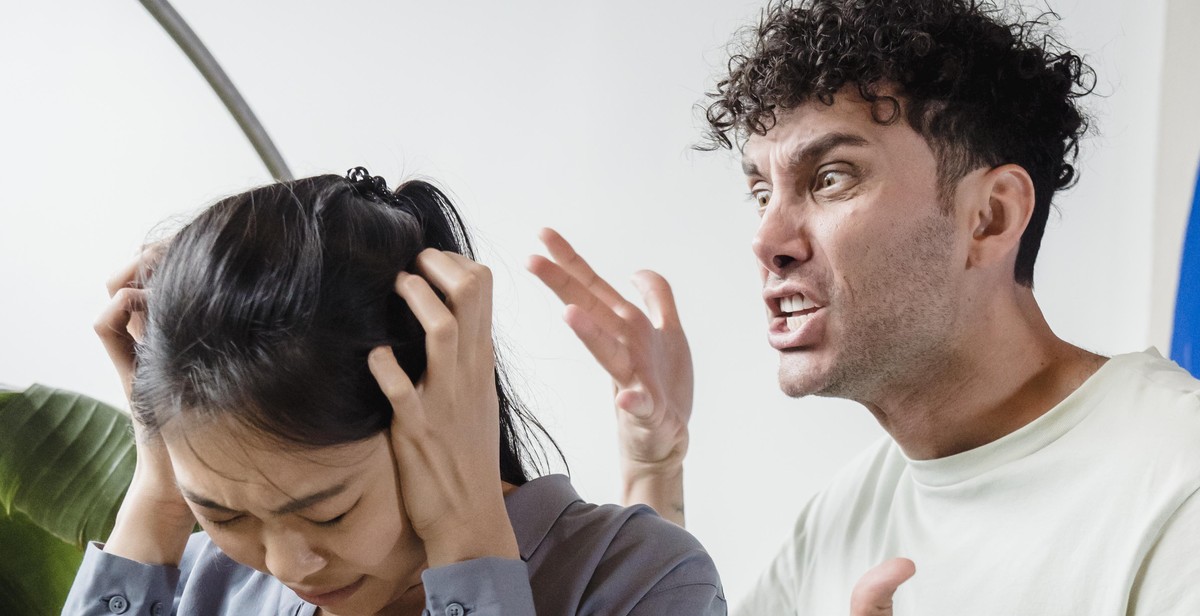Power Imbalance in Love: How to Create Equality in Your Relationship
Love is a beautiful feeling, but it can also be complicated. In any relationship, there is always a power dynamic that can create an imbalance. This can happen in any relationship, whether it is a romantic one or a friendship. When there is a power imbalance, one person has more control and influence over the other. This can lead to resentment, frustration, and even abuse.
The Effects of Power Imbalance in a Relationship
Power imbalance can lead to several negative effects on the relationship. It can cause one person to feel insecure, powerless, and undervalued. The person with more power may also feel burdened by the responsibility of making all the decisions and carrying the relationship. This can lead to resentment and frustration, which can ultimately lead to the breakdown of the relationship.
However, it is possible to create equality in your relationship and avoid the negative effects of power imbalance. In this article, we will discuss some practical ways to achieve equality in your relationship.
My Personal Experience
As a love and relationships psychology guru, I have seen many relationships suffer due to power imbalance. I have also experienced it personally. In my early relationships, I often found myself giving up my power and allowing my partner to take control. This led to feelings of insecurity and resentment, which ultimately affected the relationship.
Through my experience and research, I have learned how to create a healthy balance of power in a relationship. In this article, I will share some of the strategies that have worked for me and my clients.

Understanding Power Imbalance in Relationships
Power imbalance in relationships is when one partner holds more power than the other. This power can manifest in various forms, including financial, emotional, physical, and intellectual power. When one partner holds more power than the other, it can create an unbalanced dynamic in the relationship, which can lead to problems.
What is Power Imbalance?
Power imbalance is a dynamic that can exist in any relationship, whether it is romantic, platonic, or professional. It is when one person has more power than the other, which can lead to an unequal distribution of resources, decision-making, and influence. Power can come in many forms, including:
- Financial power: One partner has more money or resources than the other.
- Emotional power: One partner has more control over the other’s emotions.
- Physical power: One partner is physically stronger or more dominant than the other.
- Intellectual power: One partner is more knowledgeable or skilled than the other.
These power imbalances can be subtle or blatant, and they can develop over time or be present from the beginning of the relationship.
How Does Power Imbalance Affect Relationships?
Power imbalance can have a significant impact on the dynamics of a relationship. When one partner has more power than the other, it can lead to:
- Resentment and anger from the partner with less power.
- Dependence and subservience from the partner with less power.
- Unequal distribution of responsibilities and decision-making.
- Difficulty communicating and resolving conflicts.
- Low self-esteem and self-worth from the partner with less power.
These issues can lead to a breakdown in the relationship and can even lead to abuse in extreme cases.
| Tip: | It is important to recognize power imbalances in your relationship and work towards creating a more equal dynamic. This can involve open and honest communication, setting boundaries, and seeking outside help if needed. |
|---|

Identifying Power Imbalance in Your Relationship
As a love and relationships psychology guru, I have seen many couples struggling with power imbalances in their relationships. A power imbalance occurs when one partner holds more power and control over the other partner. This can lead to feelings of resentment, frustration, and even abuse. It is essential to recognize the signs of power imbalance in your relationship to create a healthy and equal partnership.
Signs of Power Imbalance
Power imbalance can manifest in various ways, and some of the signs are:
- Decision-making: One partner makes all the important decisions, and the other partner has no say in the matter.
- Financial control: One partner controls all the finances, and the other partner has limited access to money.
- Emotional manipulation: One partner uses emotional manipulation to control the other partner’s actions and thoughts.
- Physical control: One partner uses physical force or intimidation to control the other partner.
- Isolation: One partner isolates the other from friends and family, making them dependent on the controlling partner.
Why It’s Important to Recognize Power Imbalance
Recognizing power imbalance is crucial because it can lead to an unhealthy and abusive relationship. The partner who holds more power may use it to control and manipulate the other partner, leading to a loss of self-esteem and self-worth. Recognizing power imbalance can help you take action to create a more equal and healthy relationship.
It can be challenging to recognize power imbalance, especially if you have been in the relationship for a long time. However, it is essential to pay attention to the signs and take action to create equality in your relationship.
| Signs of Power Imbalance | Why It’s Important to Recognize |
|---|---|
| One partner makes all the important decisions, and the other partner has no say in the matter. | Loss of self-esteem and self-worth |
| One partner controls all the finances, and the other partner has limited access to money. | Financial dependency and control |
| One partner uses emotional manipulation to control the other partner’s actions and thoughts. | Loss of autonomy and self-control |
| One partner uses physical force or intimidation to control the other partner. | Physical and emotional abuse |
| One partner isolates the other from friends and family, making them dependent on the controlling partner. | Loss of social support and independence |
If you recognize any of these signs in your relationship, it is essential to communicate with your partner and work together to create equality. Seek support from a therapist or counselor if needed. Remember that a healthy and equal relationship is possible, and you deserve to have one.

How to Create Equality in Your Relationship
When you acknowledge that there is a power imbalance in your relationship, it can be a difficult realization to come to terms with. However, it is an essential step towards creating a healthier and more equal dynamic between you and your partner. Here are some tips on how to create equality in your relationship:
Acknowledge the Power Imbalance
The first step towards creating equality in your relationship is to acknowledge the power imbalance that exists. This can be a difficult conversation to have, but it is important to be open and honest with your partner about how you feel.
One way to approach this conversation is to use “I” statements, such as “I feel like I am doing all the emotional labor in our relationship” or “I feel like my opinions are not valued as much as yours.” This can help to avoid placing blame on your partner and instead focus on your own feelings.
Communicate Openly and Honestly
Open and honest communication is key to creating equality in your relationship. It is important to have regular conversations about your needs, wants, and expectations in the relationship.
One way to do this is to schedule regular check-ins with your partner. This can be a weekly or monthly meeting where you discuss how things are going and what you would like to see change in the relationship.
Set Boundaries and Expectations
Setting boundaries and expectations is another important step towards creating equality in your relationship. This can involve setting limits on how much emotional labor you are willing to do, or defining what responsibilities you each have in the relationship.
It is important to be clear and specific when setting boundaries and expectations. For example, instead of saying “I need more help around the house,” you could say “I would like it if we could split the household chores 50/50.”
Share Responsibilities Equally
Sharing responsibilities equally is a crucial part of creating equality in your relationship. This can include everything from household chores to emotional labor to decision-making.
One way to ensure that responsibilities are shared equally is to create a list of tasks and divide them up between you and your partner. This can help to ensure that both partners are contributing equally to the relationship.
Creating equality in your relationship is not always easy, but it is essential for a healthy and happy partnership. By acknowledging the power imbalance, communicating openly and honestly, setting boundaries and expectations, and sharing responsibilities equally, you can create a more equal and fulfilling relationship with your partner.

Conclusion
Creating equality in a relationship is crucial for both partners to feel respected, valued, and loved. Power imbalances can lead to resentment, frustration, and even abuse. However, it’s not always easy to identify and address these imbalances, especially if they are deeply ingrained in the relationship dynamic.
One of the first steps towards creating equality in a relationship is to have open and honest communication. Both partners should feel comfortable expressing their needs, wants, and concerns without fear of judgment or retribution. It’s important to listen actively and try to understand each other’s perspectives.
Another key factor is to establish boundaries and respect them. This means recognizing and accepting each other’s individuality, autonomy, and personal space. It also means taking responsibility for one’s own actions and not blaming or manipulating the other partner.
Finally, it’s important to recognize and challenge any societal or cultural norms that may be contributing to the power imbalance. This could include gender roles, stereotypes, or expectations about relationships. By breaking free from these constraints, partners can create a more authentic and fulfilling relationship based on mutual respect and understanding.
Remember, creating equality in a relationship is an ongoing process that requires commitment, communication, and self-reflection. It may not be easy, but the rewards are well worth the effort.
